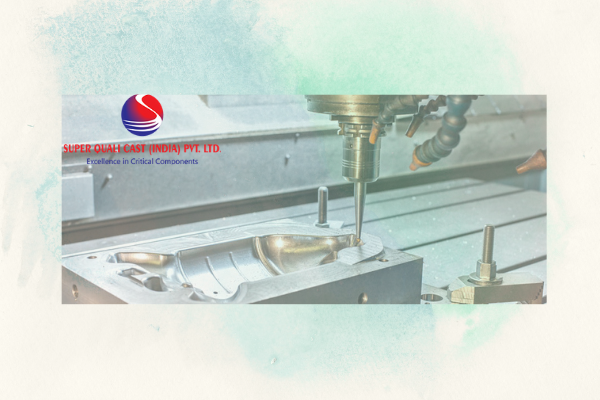Aluminum casting is a common casting process involving the liquid metal being poured into a mold or form.
In this casting or metalworking process, only aluminum and other relevant alloys are used to be poured into the mold in place of the liquid metal.
Aluminum and investment casting in India is used to efficiently produce complex and intricate parts.
The Process of Aluminum Casting
At first, the aluminum is heated to convert into a liquid form and poured into a mold. It should be noted that the mold is made with precision as the quality of the same will have direct implications on the shape and surface finish of the resulting Alloy Steel castings India.
One can make the mold using various materials, including tool steel, as the melting point of aluminum is much lower than steel. The mold can also be made out of sand in this casting process. Herein, the sand must be pressed to take the shape of the desired finished part.
As the sand is formed or shaped, the liquid aluminum can be poured into the same to allow it to be cooled. Following are the advantages which have made investment casting manufacturers in India highly popular:
- Being a lightweight metal aluminum creates lightweight parts without compromising on the part’spart’s strength.
- As per Valve Castings Manufacturers India, parts are resistant to corrosion.
- It boasts an impressive electrical conductivity rate.
- It has a great strength-to-weight ratio.
- It can be produced quickly and cost-effectively.
- It is completely recyclable and reusable in the production phase.
Applications of Aluminum Casting in India
Aerospace
Due to its lightweight properties and lack of difference in product strength, aluminum is preferred for developing different aerospace vehicles that can fly and escape the earth’s atmosphere owing to its lightweight.
Historically, even the Wright Brothers used aluminum for creating the first wood-frame biplane. Aluminum is used extensively in the aerospace industry for various shuttles and structures.
Beverage
Beverage cans are one of the longstanding markets where aluminum has dominated for years and will continue to do so shortly. Its printable surface area, recyclability, and conductivity make it an attractive choice in the market.
It also helps protect the taste and flavor of the product from any oxygen, light, or contaminants due to its seal-packed nature.
Construction and Architecture
It isn’t surprising to notice how power grids and electrical transmission lines have shifted their preference to aluminum rather than using copper as the base.
This is primarily due to the high conductivity and lightweight nature of aluminum. It is used in large glass panes to handle its weight as strong frames.
Home appliances
In our daily lives, we stumble upon various home appliances formed from the casting foundries India. Its thermal properties make aluminum a highly popular and ideal choice for refrigeration applications.
The lightweight makes sure that the appliances can be moved and placed with ease and comfort. In fact, in the digital arena, aluminum is used for creating various applications. Single blocks of aluminum are used to create the aluminum laptops produced by Apple.
Flat-screen television sets also use aluminum for their lightweight properties, making them easy to hang on the wall or somewhere else.
Apart from these, aluminum is widely used for other applications as well. Carmakers use aluminum for environmental reasons. It is also preferred in the recycling industry due to its reusability nature, especially in beverage cans and automobile parts.
Aluminum is even used for cleaning purposes nowadays. The number of use cases of investment castings in India is diverse and wide-ranging, and it will continue to be used in other sectors due to its various advantages.



